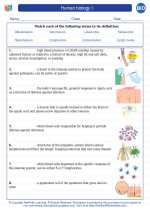Plateaus
A plateau is a flat, elevated landform that rises sharply above the surrounding area on at least one side. Plateaus are often formed by the forces of tectonic activity, volcanic activity, or erosion. They can vary in size from small, isolated formations to vast, expansive regions.
Formation of Plateaus
Plateaus can be formed through several different processes:
- Tectonic Activity: Plateaus can form when tectonic forces push up large sections of the Earth's crust, creating elevated landforms.
- Volcanic Activity: Some plateaus are formed by layers of volcanic lava and ash that accumulate over time, creating a flat-topped surface.
- Erosion: Erosion by wind and water can also create plateaus by wearing down the surrounding land, leaving behind a flat, elevated surface.
Types of Plateaus
There are several different types of plateaus, including:
- Dissected Plateaus: These plateaus have been heavily eroded by rivers and streams, creating a rugged, uneven surface.
- Lava Plateaus: Formed by volcanic activity, these plateaus are characterized by layers of solidified lava flows.
- Tectonic Plateaus: These plateaus are uplifted by tectonic forces and often form at the boundaries of tectonic plates.
Study Guide
To study plateaus, consider the following key points:
- Understand the processes involved in the formation of plateaus, including tectonic activity, volcanic activity, and erosion.
- Learn about the different types of plateaus and their distinguishing features.
- Study specific examples of famous plateaus around the world, such as the Colorado Plateau in the United States or the Deccan Plateau in India.
- Examine the ecological significance of plateaus and how they support unique ecosystems and biodiversity.
- Consider the economic importance of plateaus, such as their role in agriculture, mining, and tourism.
By understanding the formation, characteristics, and significance of plateaus, you can gain a comprehensive understanding of this fascinating landform.
[Plateaus] Related Worksheets and Study Guides:
.◂Biology Worksheets and Study Guides High School. Human biology I
Worksheet/Answer key Human biology I
Human biology I  Worksheet/Answer key
Worksheet/Answer key Human biology I
Human biology I  Worksheet/Answer key
Worksheet/Answer key Human biology I
Human biology I  Worksheet/Answer key
Worksheet/Answer key Human biology I
Human biology I  Vocabulary/Answer key
Vocabulary/Answer key Human biology I
Human biology I  Vocabulary/Answer key
Vocabulary/Answer key Human biology I
Human biology I  Vocabulary/Answer key
Vocabulary/Answer key Human biology I
Human biology I  Vocabulary/Answer key
Vocabulary/Answer key Human biology I
Human biology I  Vocabulary/Answer key
Vocabulary/Answer key Human biology I
Human biology I  Vocabulary/Answer key
Vocabulary/Answer key Human biology I
Human biology I  Vocabulary/Answer key
Vocabulary/Answer key Human biology I
Human biology I 

 Worksheet/Answer key
Worksheet/Answer key
 Worksheet/Answer key
Worksheet/Answer key
 Worksheet/Answer key
Worksheet/Answer key
 Vocabulary/Answer key
Vocabulary/Answer key
 Vocabulary/Answer key
Vocabulary/Answer key
 Vocabulary/Answer key
Vocabulary/Answer key
 Vocabulary/Answer key
Vocabulary/Answer key
 Vocabulary/Answer key
Vocabulary/Answer key
 Vocabulary/Answer key
Vocabulary/Answer key
 Vocabulary/Answer key
Vocabulary/Answer key

The resources above cover the following skills:
LIFE SCIENCE (NGSS)
From Molecules to Organisms: Structures and Processes
Students who demonstrate understanding can:
Develop and use a model to illustrate the hierarchical organization of interacting systems that provide specific functions within multicellular organisms.
Plan and conduct an investigation to provide evidence that feedback mechanisms maintain homeostasis.